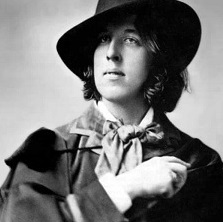Meaning of the Quote:
Oscar Wilde, one of history’s most celebrated wits, had a knack for crafting statements that carried layers of meaning, humor, and critique. The quote in question, “Perhaps, after all, America never has been discovered. I myself would say that it had merely been detected,” is no exception. This statement invites us to examine the nature of discovery, the cultural implications of America’s historical narrative, and Wilde’s characteristic perspective on Western society.
1. Discovery vs. Detection
The quote hinges on the distinction between “discovered” and “detected.” To discover something implies a deeper engagement—a profound recognition or understanding of its value, culture, and complexities. To detect, on the other hand, suggests something superficial, akin to merely noticing or locating something without fully grasping its essence.
By saying that America had merely been “detected,” Wilde might be critiquing the colonial mindset of European explorers. While they found the continent, they largely ignored or dismissed the advanced civilizations already thriving there. The indigenous peoples’ cultures, histories, and contributions were marginalized, and their lands were exploited rather than truly understood or respected. Wilde’s phrasing questions the legitimacy and depth of such “discovery.”
2. A Critique of Eurocentrism
Wilde’s quote also serves as a subtle critique of the Eurocentric narrative that dominated history during his time. For centuries, European explorers were credited with “discovering” lands, as though these places were void of inhabitants or culture before their arrival. This perspective not only erases the agency and histories of indigenous peoples but also reflects a sense of arrogance and entitlement.
By reframing the so-called discovery as mere detection, Wilde undermines this grandiose narrative. His words challenge us to reconsider history not from the perspective of the colonizer but from a more inclusive and accurate viewpoint.
3. The American Experiment
Wilde’s quip could also reflect his thoughts on the broader American experiment and its cultural identity. In Wilde’s era, America was seen as a rising power, yet one still grappling with defining its place in the world. Perhaps Wilde was suggesting that America had yet to fully realize its potential or define its identity beyond the simplistic labels placed upon it by outsiders.
For Wilde, discovery might symbolize a moment of profound realization and self-awareness—qualities he found lacking in the way America and its history were often portrayed. His comment could imply that America’s true essence had yet to be fully unearthed, either by its inhabitants or by the world.
4. Wilde’s Wit and Satirical Lens
As always, Wilde’s words carry a tone of satire. His playful yet pointed critique of societal norms and historical narratives often left readers both amused and reflective. The whimsical nature of his statement allows it to critique serious issues—such as colonialism and historical erasure—without sounding overly moralistic or preachy.
5. A Modern Interpretation
Today, Wilde’s quote resonates more strongly than ever. As we continue to reckon with the legacies of colonialism and strive for a more inclusive understanding of history, his words remind us of the importance of questioning dominant narratives. True discovery, in Wilde’s sense, involves not only finding something new but also engaging with it deeply and authentically, honoring its inherent value and complexity.
Conclusion
Oscar Wilde’s assertion that America had been “detected” rather than “discovered” is both a critique and a challenge. It critiques the shallow and often exploitative approach of colonial powers while challenging us to rethink how we define discovery. Wilde’s brilliance lies in his ability to spark such profound reflection with a single, clever phrase. His words encourage us to move beyond superficial understandings of history and culture, urging us to seek genuine discovery—marked by respect, depth, and empathy.
~ Oscar Wilde
Buy awesome books published by Oscar Wilde :
Indian Users : Amazon IN | Flipkart
International Users : Amazon COM
USA Users : Amazon | Canada Users : Amazon CA
UK Users : Amazon UK | German Users : Amazon DE
French Users : Amazon FR | Italy Users : Amazon IT
Brazil Users : Amazon BR | Mexico Users : Amazon MX
Spain Users : Amazon ES |China Users : Amazon CN
Japan Users : Amazon JP | Australia Users : Amazon AU

Oscar Fingal O’Flahertie Wills Wilde (16 October 1854 – 30 November 1900) was an Irish poet and playwright. After writing in different forms throughout the 1880s, the early 1890s saw him become one of the most popular playwrights in London. He is best remembered for his epigrams and plays, his novel The Picture of Dorian Gray, and the circumstances of his criminal conviction for gross indecency for consensual homosexual acts, imprisonment, and early death at age 46.




